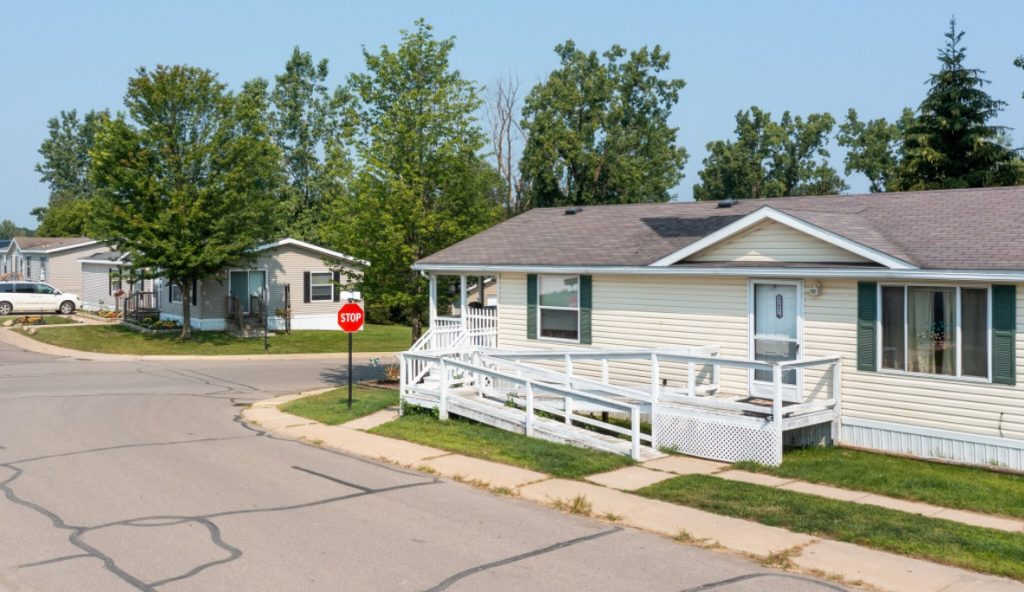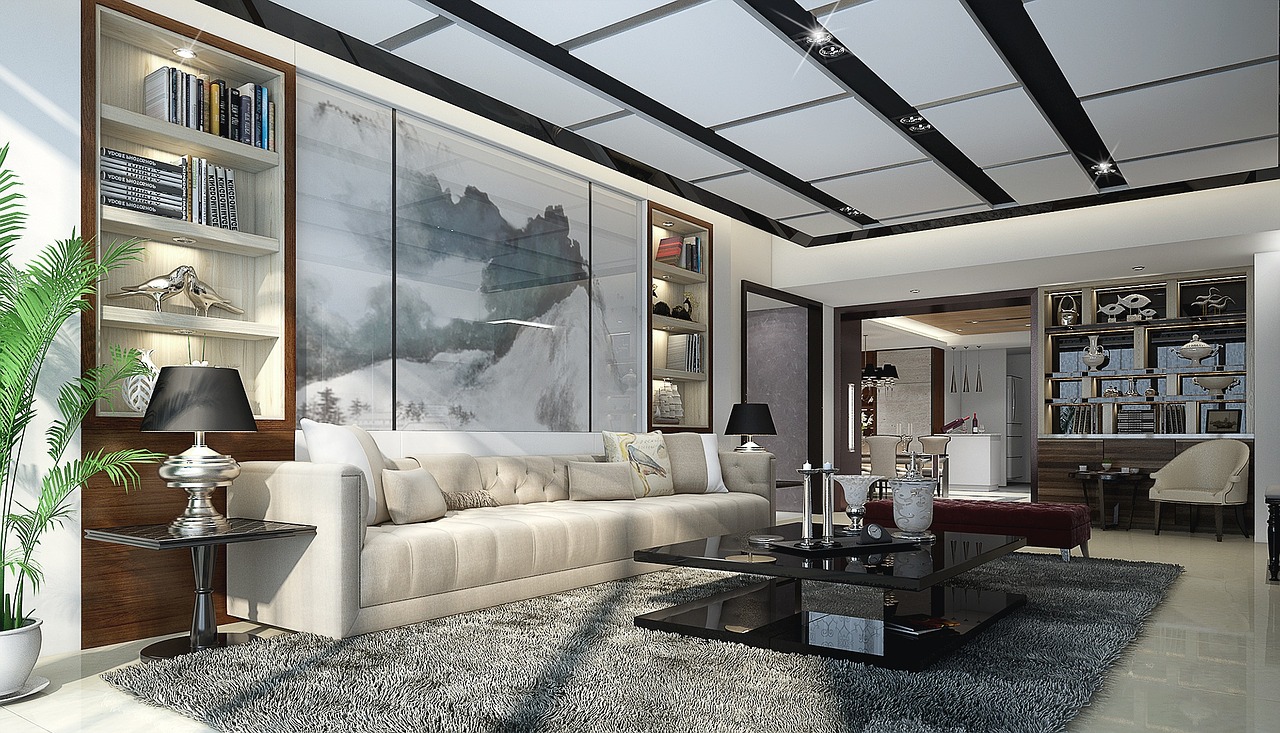When debating different types of homes, more often than not, there’s some confusion regarding the terms used to discuss what kind of house is being built.
For instance, the terms prefab, modular, panel-built, and manufactured are sometimes mistakenly used interchangeably. However, they all mean different things, instead of what many people believe is the same thing.
Mobile Home vs. Prefab
To better understand the difference between a mobile and prefab home, let’s begin by defining them.
What is a Mobile Home?
The definition of a mobile or a trailer home has changed drastically since the late 1970s. For example, before 1976, mobile homes were easily moved living spaces built off-site.
Interestingly, there wasn’t much supervision of trailer homes then; as such, the quality of the homes built was far different from today’s houses that are built to HUD Code.

In a nutshell, trailer homes refer to homes built before 1976, while manufactured homes are built after 1976, under strict regulation administered by the U.S. Department of Housing and Urban Development (HUD Code).
What is a Manufactured Home?
Manufactured homes are built in a well-regulated environment that helps limit delays, and they have an almost endless list of customizable features.
After construction in a factory, they are transported to the home site and placed on a solid foundation. The building code for manufactured homes means that they are durable, withstand harsh weather conditions, and are energy-efficient.
People living in manufactured homes have a spacious and luxurious floor plan. For a manufactured home to be considered, it must adhere to all federal regulations and building codes.
What is a Prefab Home?
A prefab is short for prefabricated housing. Prefab is a broad term that consists of several different types of buildings. Think of it as an umbrella.
Any home with sections of the structure built in a factory and assembled on-site can fall under the term “prefab.”
For example, modular and panel-built fall under the term “prefab home;” however, they are different.
So what’s a panel and modular building?
Panel Building
A panel building is accomplished by laying down the floor, then lowering each wall section to place one at a time.
This type of building has several benefits. It’s cheaper to transport a building in panels than in modules, if it is large enough.
Modular Building
A modular home is constructed in separate box–like modules, then secured together to form a whole.
Once the pieces are transported and joined together, these homes look similar to site-built homes. More importantly, these homes must adhere to local and state codes, depending on where the building is located.
Generally, they are not wider than 16’ since they are transported on the backs of flatbed trucks over highways.
Typically, a modular home doesn’t allow features like a garage or porches built in the factory. However, modular home factories can deliver your home up to 90% complete by putting together modular and panel building techniques.
The Difference Between Trailer Homes vs. Prefab
While many people often mistake prefab and manufactured homes, the discussion below will help you get the difference between the two.
Here’s what separates the two terms:
● Building Codes
● Resale Value
● Building Limitations
● Appearance
● Quality
Building Codes
All kinds of prefabricated buildings adhere to state and federal building codes. Also, just like the site–built homes, they too undergo regular inspections.
Inspections are meant to ensure prefab homes are as safe as their counterparts, site-built homes. Interestingly, there’s evidence that a well-built modular home is even more sturdy than a similar site-built home.
In contrast, manufactured homes adhere to HUD standards, which are administered by the U.S. Department of Housing and Urban Development. Usually, these regulations are lenient compared to their counterparts’ real estate homes.
Resale Value
When it comes to resale value, it’s important to note that prefabricated homes are considered real estate assets. As such, they maintain or increase in value over time, just like a site-built home.
On the other hand, manufactured homes are considered personal property and lose value as soon as it’s driven off the lot, similar to a car.
While existing manufactured homes lose value over time, it’s proven that you’re likely to maintain or gain a substantial amount when selling with better maintenance practice.
Building Limitations
While modern techniques have allowed prefabs to become as easily customizable as site-built homes, manufactured homes are pretty much constrained. In other words, manufactured homes have limited options.
Most trailer home dealers will have the home pre–built and then just sell from their available stock. As such, any customization is done by the owner.
Appearance
While the push to modernity has forced the industry to adopt steel-frame construction, traditionally, prefab homes are wood-framed.
The steel-frame construction has given panel and modular building flexibility in design, which allows for custom architecture.
Some still have that tin-can look for manufactured homes, while others have been modernized to look like traditional real estate homes. However, there’s little room for exterior alterations.
Quality
One of the most significant differences between prefab homes and manufactured homes is the quality of the final product.
Modular homes are built with factory precision, using 25% more material on average, than either site-built or manufactured homes.
Modular homes stand a better chance in extreme weather while requiring little maintenance, than their manufactured homes counterparts.
Which is Right for Me?: Modular Homes vs. Manufactured Homes
Deciding on the type of prefab housing can be challenging. However, using the point of differences above can help you make an informed decision.
For example, modular homes have advanced quite a lot over the years, when it comes to customization. As such, they offer a wide range of options for customizing your home.
On the other hand, manufactured homes offer little to no room for customization; therefore, consider going for modular homes if you have a specific design in mind.
Even though prefab homes are a cheaper option themselves, the type of home you want can affect the cost of building. As such, modular homes tend to be more expensive than manufactured homes.
Therefore, you will want to consider one that fits your budget.
The Pros of Prefab Homes
Prefab homes are similar to site-built homes, only that their construction began in a factory.
For example, modular homes are built on an assembly line and taken by truck to the building site, where the house is completed.
Here are the pros of buying a prefab home.
● Affordable
● Financing
● Energy-Efficient
Affordable
Since prefab homes are built in a controlled environment, they tend to be cheaper than traditional homes.
Modular homes experience no weather delays. There may also be fewer delays due to the shipment of supplies and on-site inspectors to speed the building process along.
The longer it takes the crew to build the home, the more expensive it will likely be.
The affordability of prefab homes can be attributed to the following factors:
- When modules are built in a factory, the amount of material waste is reduced by quite a lot, leading to overall cost savings.
- Since prefab homes take a shorter time to build, it reduces the need for interim construction financing significantly.
- Prefab homes require less workforce, as different tasks are managed more efficiently in the factory.
Financing
Modular homes are easy to finance since they are considered real estate assets. For instance, modular homebuyers can finance their home purchase through a modular home manufacturer.
Like any other type of loan, knowing the interest rates is crucial before agreeing to take the mortgage.
While manufactured homes’ value decreases over time, modular homes, just like a traditional home, increase in value over time; as such, it’s easier to finance it.
Energy-Efficient
Modular homes are built to be energy efficient, using high-quality windows and insulation. If you buy a modular home, expect to pay less on utility bills.
Another advantage of modular homes is that it’s easy to test for these energy-efficient measures if they work, since they’re built in a factory.
Apart from an energy-efficient home saving you a couple of dollars in utility bills, it will also make the home worth more if you decide to sell it.
The Cons of Prefab Homes
While prefab homes have many benefits, their drawbacks are something you might want to know about:
● Need for Land
● Pay-As-You-Go
Need for Land
To build modular homes, you must own land. For a traditional real estate home, a home builder builds a home on property he has pre-purchased.
On the other hand, most modular home dealers sell only the home.
As such, you need to find land in a neighborhood. You may also need to do some background checks to establish that your desired neighborhood does allow modular buildings.
Pay-As-You-Go
For a modular home to be completed, you must pay the builder in full. This means that you should be making payments as the work is being done.
You may decide to use personal savings or money from a construction loan taken out from a modular home dealer.
The Pros of Trailer Homes
Manufactured homes have many distinct benefits. No wonder their popularity has been growing over the years.
Here are some perks you’ll enjoy when buying a trailer home:
● Affordability
● Low-Maintenance Cost
● Quick Construction
Affordability
One of the biggest advantages of buying a manufactured home is affordability. It’s cheaper than a traditional home due to its lower price per square foot.
For example, in September 2018, the average price of a traditional home in the United States was $226,000. On the other hand, the average price for a trailer home was only $90,000.
Low-Maintenance Cost
Compared to a traditional home, manufactured homes will require less maintenance.
For a traditional home, maintenance will be a regular thing that will push the monthly spend high. As such, if you don’t have a monthly budget for maintenance, you may want to consider buying a mobile home.
Quick Construction
It takes a few days to a couple of weeks for a trailer home to be manufactured. On the other hand, it will take a longer time, maybe up to two years in some cases, to build a traditional home.
The Cons of Trailer Homes
Even though manufactured homes are cheaper, among other benefits that come with them, they also have drawbacks that you should know about:
● Depreciation
● Harder to Resell
● Financing
Depreciation
This might be the most significant disadvantage of buying a trailer home. Manufactured homes depreciate over time. For this reason, it’s harder to recoup your investment.
Harder to Resell
Reselling manufactured homes can be harder if they are set up in trailer parks, or the buyer will need to move the home from where it’s currently located.
It may require extra cost to move the home from the park, discouraging a buyer from closing the deal.
However, all is not lost with trailer homes; so long as you adhere to a regular maintenance practice, you stand a better chance of recouping most, if not all, of your initial investment.
Financing
Unlike traditional homes, which are real estate assets, a trailer home is considered personal property. As such, it can be tough to secure financing for a trailer home compared to a traditional home.
Conclusion
Whether you choose a prefab home or a manufactured home, the decision will entirely depend on your situation.
For instance, is there enough budget to finance the bill of a modular home or trailer home? Which pros and cons are more acceptable to you than the other?
With that in mind, we hope you can make a good buying decision for you and your family.









